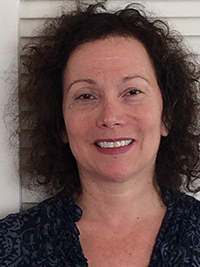
Getty
2/16/15 3:36 PM EST :: Chicago Mayor Rahm Emanuel touts his education reform agenda as one of his greatest achievements as he campaigns for reelection.
It may also be his greatest vulnerability.
Emanuel is facing an unexpectedly tough challenge in his bid for a second term. Polls suggest his four opponents could pull enough votes in the Feb. 24 election to force a runoff.
That would be a political shocker, and it could reverberate far outside Chicago.
Democratic mayors and governors across the nation are increasingly standing up to their traditional allies in the teachers unions to demand huge changes in urban school districts — and labor is frantically, furiously fighting back. Local and national unions have made Emanuel a top target, pouring resources into the effort to oust him. If they succeed, they’ll gain momentum, not to mention a huge PR victory.
But if Emanuel wins despite the unions’ best efforts, analysts say it would embolden other Democratic reformers to forge ahead with a controversial agenda that includes closing struggling neighborhood schools, expanding privately run charter schools and overhauling the teaching profession by repealing tenure, trimming benefits and paying teachers in part based on how well their students score on standardized tests.
Portions of this agenda are already being championed by high-profile Democrats including New York Gov. Andrew Cuomo, Connecticut Gov. Dannel Malloy — and, most notably, by Emanuel’s one-time boss in the White House, President Barack Obama. But the reform camp predicts more mayors, in particular, will be willing to jump into the fray if Emanuel proves that a big-city Democrat can defy the teachers union, anger a whole lot of black and Hispanic parents — and still pull off a win against liberal rivals in his own party.
“A lot of folks in the education debate are watching this race closely,” said Owen Kilmer, who is running the political activities of Democrats for Education Reform Illinois, which supports Emanuel and his allies on the city council. “They want to know if education reform policies are going to succeed at the polls.”
The most recent Chicago Tribune poll of likely voters, taken at the end of January, had Emanuel’s support at 42 percent, well short of the 50 percent he needs to avoid a runoff. His closest challenger, Cook County Commissioner Jesús “Chuy” Garcia, had support from about 18 percent of voters — and the backing of the teachers union. Fully 20 percent of those polled were undecided.
Plenty to boast about
On the surface, Emanuel would appear to have plenty to boast about when it comes to education.
He appoints the board that runs Chicago Public Schools. And the sprawling district, once labeled the worst in the nation, has been on a winning streak.
The graduation rate has soared 11 percentage points since Emanuel was elected, hitting a record 69.4 percent last year. The attendance rate is at a record, too. So is the average ACT composite score: At 18, it’s still far below the benchmark that indicates a student is ready for college, but it’s been slowly, steadily improving.
In his campaign literature, Emanuel talks of “a rising tide of achievement” in Chicago Public Schools, which is the nation’s third-largest district, with 600 schools serving 400,000 students.
Emanuel has also enacted populist education programs with wide appeal: He’s making pre-K and full-day kindergarten widely available, for instance. And he has promised free community college tuition — and even free books — to any student who passes math and reading tests and graduates a public high school with at least a 3.0 GPA.
After a long and bitter tussle with the teachers union, Emanuel even succeeded in getting an agreement to lengthen the school day and extend the year — something his predecessors had talked about for years but never got done. Over the course of their K-12 education, students will receive the equivalent of two full years’ worth of additional learning time thanks to the schedule change.
“Rahm has done some extraordinarily important things, and some very difficult things,” said Timothy Knowles, director of the Urban Education Institute at the University of Chicago.
But many voters have a different view.
“As it relates to education, ‘Anybody but Rahm’ is the mantra I hear,” said Rose Joshua, president of the NAACP’s Southside branch.
A Chicago Tribune poll last summer found 65 percent of registered voters, including 77 percent of black voters, disapproved of Emanuel’s handling of the public schools.
Asked whether they sided more with the mayor or Chicago Teachers Union, 62 percent said the union. Just 23 percent chose the mayor.
Sea of red shirts
Emanuel won election in 2011 with strong support from minority voters.
But that goodwill faded in the fall of 2012, when Emanuel faced off with the fiery union leader, Karen Lewis, over a slew of contract issues, including pay for the extended school day.
The union voted to strike. A sea of teachers in bright red shirts poured into the streets. They marched. They rallied. And over and over, they denounced the mayor as a tool of corporate interests, intent on turning public schools over to private-sector profiteers.
The strike lasted seven days. Despite the inconvenience of having schools closed, many parents rallied around their teachers and the union.
It didn’t help the mayor when rumors spread that he had leveled a crude playground curse at Lewis, who is African-American, during a private meeting about the contract negotiations. (The famously profane Emanuel didn’t deny it.)
Teachers declared victory after the strike, though they didn’t win many concessions. For a brief stretch, things settled down.
Then in 2013 the district announced, with the mayor’s support, that it would shutter dozens of low-performing, under-enrolled schools — the vast majority of them in the heavily minority neighborhoods on Chicago’s south and west sides.
The closure list in the end was pruned to 49 schools. It was the largest school closing in the U.S. And it triggered enormous rage at the mayor.
“Those wounds are very fresh,” said Jitu Brown, a parent activist who has fought Emanuel on school issues.
The schools targeted for closure had posted dismal test scores for years. But many of them were anchors in their neighborhoods: They hired local moms and dads to fill jobs such as recess monitor; they offered after-school activities to keep kids off dangerous streets; they employed teachers who knew local families so well, they didn’t hesitate to call up an aunt or a grandma if a child was slacking off in class.
Garcia, the challenger backed by the teachers union, said he sees the school closings as a symbol of Emanuel’s “insensitivity” to ordinary constituents.
A sense of despair
“He was totally uncaring about, or unaware of, the impact it would have on communities,” Garcia said. “In many of those neighborhoods, the schools were the only sense of stability. Now they sit there as an eyesore. It sucked out any vitality that was there and created a sense of despair in those communities.”
Many residents of those neighborhoods were especially piqued when they considered the resources the mayor has poured into sprucing up schools taken over by private charter management organizations.
Emanuel has long been a big advocate for charters, which are publicly funded but privately run — and are often not unionized. Some Chicago charters have stellar records: Last year, all 12 of the open-enrollment high schools with the best ACT scores were charters. Others, however, have struggled academically and drawn criticism for their high rates of student suspensions and expulsions.
David Spielfogel, a senior campaign adviser to Emanuel, said the mayor considered closing the schools the toughest decision he had to make in his four years in office, but remains convinced it was the right call.
Subsequent research has found that 93 percent of the children displaced by the shutdowns ended up attending a school with a better performance rating — though in many cases, only marginally better.
The mayor has made clear he’s in this job to improve public school options for all Chicago school children,” Spielfogel said. “He puts that above any political price he might have to pay.”
That decisiveness does resonate with some voters.
“He has the ability and willingness to make politically tough decisions,” said Michael Butz, who has a fifth grader in a public magnet school.
Voters elected Emanuel in 2011 “to be an SOB, because only an SOB could stand up to the personnel costs that are embodied in union contracts,” said Charles Lipson, a political scientist at the University of Chicago. “He has not disappointed.”
Call for a charter moratorium
All last fall, CTU President Lewis flirted with running against Emanuel. Political analysts thought she’d have a strong chance at toppling him if she did. Then she was diagnosed with a brain tumor and pulled out.
That left Garcia to pick up the union mantle. He has raised a little over $1 million, including more than $200,000 from the national American Federation of Teachers. The CTU has pumped $300,000 into an independent PAC supporting him. Garcia just put up his first TV ad last week.
Emanuel, by contrast, has raised some $13 million and has been on the air for weeks with upbeat TV ads.
Garcia’s education platform includes a call for a moratorium on charter schools and a pledge to push the state legislature to change the law so that Chicagoans can elect school board members, rather than have them appointed by the mayor. Other planks are somewhat vague: He wants to reduce class size and limit high-stakes standardized testing to “the barest legal minimum.”
Also on the ballot: Alderman Bob Fioretti, a member of the progressive caucus; businessman Willie Wilson, who touts his personal story of rising to wealth after dropping out of school in seventh grade; and perennial candidate William “Dock” Walls. All three support an elected school board.
Whoever wins is likely to face more tensions over education policy quite quickly.
Chicago Public Schools is facing a deficit of nearly $1 billion due to skyrocketing pension costs.
And negotiations are just opening on a new teacher contract. Lewis has already warned that the union has a list of demands that are “going to cost money.”
If the city won’t listen, she says, her members will strike.
 Illustration by Eric Davison
Illustration by Eric Davison

















